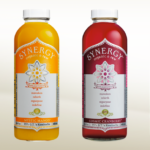For people who aren’t in recovery or don’t have a loved one who is, the arrival of Labor Day is about planning: whom to invite, what to wear, a contingency plan in case it rains, the menu and whether to “only” have beer, include liquor or forgo it altogether because “Remember how drunk Uncle Bill got last year? People are still talking about it!”
 If you are brand new in recovery and figuring out how to live as a sober person, these events can be tricky, if not downright scary. Remember, you’re still the same person who decided to stop drinking or using. You stopped for a reason—maybe the consequences of your behavior became too great, you are obligated by law, or something else compelled you to stop—and that reason still exists. Your ability to handle alcohol has not changed just because you’ve been through rehab and are now going to meetings or therapy. Your body and mind are still adjusting and becoming healthier. Don’t interfere with this process by drinking or using.
If you are brand new in recovery and figuring out how to live as a sober person, these events can be tricky, if not downright scary. Remember, you’re still the same person who decided to stop drinking or using. You stopped for a reason—maybe the consequences of your behavior became too great, you are obligated by law, or something else compelled you to stop—and that reason still exists. Your ability to handle alcohol has not changed just because you’ve been through rehab and are now going to meetings or therapy. Your body and mind are still adjusting and becoming healthier. Don’t interfere with this process by drinking or using.
But this doesn’t mean you can’t have fun. In fact, all it means is that you are learning a new way to live and a new way to have fun—sober. Here are some tips to get you through your first major outing sober.
1. This Is Not the Time to Invoke “Don’t Ask, Don’t Tell”
If you aren’t the one planning the festivities, consider all of your invitations and pick the event least likely to have drugs or alcohol present. Whether it’s a family member, a friend or a coworker, don’t be afraid to ask the host if it will be a sober party. You always have the option to say no. The only time it isn’t suggested you break your anonymity is if there is a concern you could lose your job or standing in the community.
You may assume it’s best to avoid a party that will have drinking going on, but that’s not necessarily true. Let your host know you’re new in recovery. You may be surprised by her reaction. “Oh, my cousin has been sober for 20 years. Hang out with him and his buddies. They’ll keep you safe.”
Much as you may want to keep this private, secrecy is not always conducive to recovery and can backfire. While you don’t have to tell everyone you meet, your loved ones can’t help you if you keep them in the dark.
If friends who don’t know your situation ask why you’re not drinking, don’t hide the truth. Once they know what’s going on, more often than not people will be supportive and understanding.
Let them be.
2. Know Your Triggers and Do Your Best to Avoid Them
Everyone with a substance use problem has triggers that can send them spiraling out of control and put them at risk for using again. We’ve all heard the expression “people, places and things” that place us in potentially dangerous situations—the possibilities are endless. Be mindful of them at all times and aware of new ones as they come up.
Just because it’s a holiday doesn’t mean your triggers go on vacation. In fact, they can be even more treacherous when you’re in situations in which you used to drink or use, as you may be when you’re on vacation or celebrating. The more you know these triggers, the better in touch with them you can be to avoid them.
3. Keep the Conversation Light, Positive and Constructive
Remember, you’re there to have fun. Don’t let anyone corner you, confront you or unload their negative energy or judgmental attitudes on you. You’ll no doubt meet people who feel uncomfortable with your sobriety and want to either justify their own drinking or try to get you to “have just one.” Don’t fall for it. Take care of yourself and get out of the situation as quickly as possible, and don’t feel the need to apologize.
Move on to safe people or tell the host what happened. Chances are your host will have your back and if she doesn’t, leave with your sobriety still intact.
4. There’s Strength in Numbers
If there is an event you don’t want to miss or it could be detrimental professionally to opt out, even if you know alcohol or drugs may be present, bring along a friend or two who can look out for you.
Your sober buddy/buddies should be trustworthy and reliable, and they should be ready to get you out of there if it starts to get dangerous.
5. Organize Your Own Party
If you know your aunt’s barbecues always involve alcohol and that, year after year, guests just learn to overlook her husband’s “antics”—and that she doesn’t really want to “stop tradition” or make everyone else suffer because her husband has a “little problem”—plan your own.
Grab some sober friends and create your own fun. If you look at your friends and family and see that many of them are still drinking or using, turn to people in your 12-step, SMART, or other meetings or fellowships. This is a great time to forge new bonds with people who, like you, are also new to sobriety or those who’ve been sober a long time whose wisdom you can tap into.
This kind of reaching out has two benefits: it reinforces your foothold in a community that will have your back when you need it, and it allows you to make friends with likeminded people. You can talk about your struggles with family, friends and/or work, along with any fears, in a safe environment—all while having fun.
One Slip Isn’t the End of the World
And if you drink or use—whether intentionally or accidentally—don’t beat yourself up! There’s a reason we call it a slip. If you don’t have a sponsor or trusted sober friend you can turn to, get one immediately. Talk this through with your sponsor and don’t dwell on it. You’ll find that most people in recovery have slipped, and learned to pick themselves up and keep going.
You can, too.
This Is Not the Time to Prove Something
You may see the upcoming Labor Day celebrations as a chance to prove a point—to yourself and others. You don’t need to prove that you’re stronger than your addictions. Early recovery is not the time to be with people who may tell you “just stick to beer” or that you should relax because it’s a holiday. Take care of yourself and remember you can always leave any uncomfortable situation.










